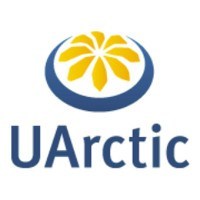IASSA Declaration on Indigenous Knowledge
On June 9, 2017, ICASS IX hosted and Indigenous Knowledge roundtable discussion organized by the Indigenous Peoples Secretariat.
The panelists of the roundtable have developed the following statement:
Indigenous Knowledge provides a foundation for individual and collective well-being of past, present, and future generations of Arctic Indigenous Peoples. This knowledge system holds inherent value and methodologies, functions and validation processes. Indigenous Knowledge empowers communities throughout the circumpolar north to significantly advance our understanding, intellectual performance and management of the Arctic.
We are thankful that IASSA has invited and showcased issues and topics that are inclusive and community driven. IASSA has demonstrated their willingness to expand the ways in which Indigenous scholars and Indigenous Knowledge holders are engaged. By providing a platform that brings together a holistic and meaningful conversation, this progress will continue within IASSA and beyond.
Moving forward we suggest the following actions that can be supported by IASSA, individual IASSA members and the broader research community:
- Revise IASSA research principles to explicitly include Indigenous Knowledge.
- Clearly declare and ensure permanent support for Indigenous Knowledge within IASSA as defined by Indigenous Peoples, e.g. the development and supporting an Indigenous Knowledge Working Group or task force.
- Produce a white paper synthesizing existing national and international ethical protocols for the engagement of Indigenous Knowledge and Indigenous communities.
- Work with Indigenous Knowledge holders to develop best practices for the engagement and utilization of Indigenous Knowledge and Indigenous Knowledge holders within Arctic research.
- Sponsor and facilitate Indigenous Knowledge workshop(s), early career training opportunities or other engagement formats within IASSA.
- Advocate for Indigenous Knowledge engagement by other Arctic research organizations, at the international and national levels (Arctic Council, IASC, national funding agencies, those that define research needs and other appropriate organizations).
- Investigate methods that position Indigenous communal oral histories as being of equal value to peer-reviewed science in Arctic studies.
In addition, we call on individual researchers to ask themselves: What Can I Do?
Indigenous Knowledge round table panelists:
Carolina Behe, Inuit Circumpolar Council
Åsa Larsson Blind, Saami Council
Liza Mack, Aleut International Association
Professor Dr. Svein Disch Mathiesen, UArctic Institute for Circumpolar Reindeer Husbandry at International Centre for Reindeer Husbandry, Saami University of Applied Science and UIT Arctic University of Norway
Dr. Andrey Petrov, University of Iowa, Yukon College, IASSA
Moderator: Dr. Noor Johnson, Exchange for Local Observations and Knowledge in the Arctic




